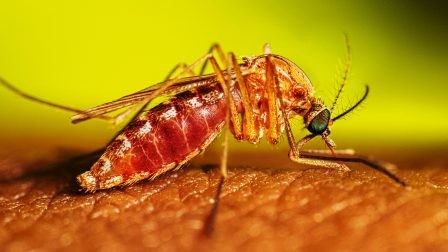As summer approaches, the West Nile virus is making headlines again, with recent detections sparking concern across multiple regions. This mosquito-borne illness, often carried by birds and transmitted to humans through bites, is showing up in unexpected places, urging communities to stay vigilant. From urban centers to rural areas, health officials are sounding the alarm, emphasizing prevention as cases and detections rise. Let’s dive into the latest updates on this public health challenge and explore what it means for you.
West Nile Virus Hits the UK for the First Time
In a startling development, the United Kingdom reported its first-ever detection of West Nile virus in mosquitoes this week. Found in ponds near Retford, Nottinghamshire, the virus was identified through a joint surveillance program. Health authorities quickly reassured the public that the risk remains low, with no human cases reported in the UK to date. However, the discovery has raised eyebrows, as climate change is pushing mosquito populations northward, bringing diseases like West Nile virus to new territories. This milestone underscores the need for heightened awareness, even in regions previously untouched by the virus.
West Nile Virus in the U.S.: Early Detections in 2025
Across the Atlantic, the U.S. is also grappling with early signs of West Nile virus activity. In California, two dead crows in Lemon Grove tested positive, marking San Diego County’s first detections this year. No human cases have surfaced there yet, but the findings have prompted officials to urge residents to protect themselves from mosquito bites. Similarly, Illinois reported its first positive mosquito pool in Rockford, while Tarrant County, Texas, confirmed a positive mosquito sample during routine surveillance. These early detections signal a potentially intense mosquito season, especially in warmer states where the virus thrives.
| Region | Recent Detection | Details |
|---|---|---|
| UK (Nottinghamshire) | Mosquitoes tested positive | First-ever detection; no human cases reported |
| California (San Diego) | Two dead crows tested positive | First detection of 2025; public urged to avoid mosquito bites |
| Illinois (Rockford) | Mosquito pool tested positive | First 2025 detection; “three R’s” (Reduce, Repel, Report) emphasized |
| Texas (Tarrant County) | Mosquito sample tested positive | Routine surveillance caught early signs; no human cases reported |
Why West Nile Virus Matters Now
Most people infected with West Nile virus—about 80%—experience no symptoms, which makes it tricky to track. For the 20% who do develop symptoms, the effects can range from mild flu-like issues, such as fever, headache, and fatigue, to severe complications like encephalitis or meningitis. Those over 50 or with weakened immune systems face the highest risk of serious illness. In 2024, places like Long Island saw near-record cases, with 41 human infections reported, while Dallas County mourned two deaths. These numbers remind us that, while rare, severe outcomes are real. With 2025 already showing early detections, experts predict another active season, especially in areas with warm, wet conditions that mosquitoes love.
Protecting Yourself from West Nile Virus
Prevention is your best defense. Health officials across affected regions are pushing simple but effective strategies to keep West Nile virus at bay. Eliminate standing water in your yard—think old tires, flowerpots, or clogged gutters—to stop mosquitoes from breeding. Wear long sleeves and use insect repellents containing DEET when outdoors, especially at dusk and dawn when mosquitoes are most active. Reporting stagnant water to local authorities can also help, as they may treat it with larvicide. These steps, often called the “three R’s” (Reduce, Repel, Report), are critical in high-risk areas like Sacramento and Yolo counties, which saw 53 and 39 human cases, respectively, in 2023.
The global spread of West Nile virus, fueled by climate change and longer mosquito seasons, is a wake-up call. From the UK’s first detection to early cases in the U.S., the virus is a reminder of nature’s unpredictability. Staying informed and proactive can make all the difference. Whether you’re in a newly affected area like the UK or a hotspot like Texas, taking small steps now can protect you and your community. Let’s keep the conversation going—share your thoughts or tips on staying safe this mosquito season!
Stay ahead of West Nile virus! Check your local health department’s website for updates, clear standing water around your home, and share these prevention tips with friends and family to keep your community safe.
